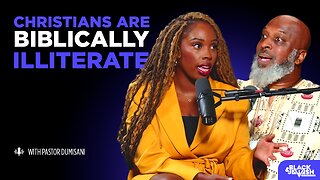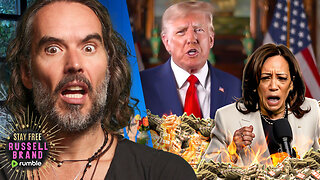Premium Only Content

"Paul Clifford", Chapter 4, by Edward Bulwer-Lytton
He had now become a young man of extreme fashion, and as much repandu in society as the utmost and most exigent coveter of London celebrity could desire. He was, of course, a member of the clubs, etc. He was, in short, of that oft-described set before whom all minor beaux sink into insignificance, or among whom they eventually obtain a subaltern grade, by a sacrifice of a due portion of their fortune.
-Almack's Revisited.
----
St. James's started out as the homes of the aristocracy, but by the 19th century had become a hotbed of "gentleman's clubs", which is not actually a euphemism for dens of iniquity, but just social clubs for men to go and hang out. After WW2 it became more of a commercial district.
public house is the long form of "pub".
beadle: a ceremonial officer of a church, college, or similar institution
the cut direct: to stare in the face someone that you know, while pretending to not know them
ton: not a unit of weight in this case, but rather of fashionable style or distinction. The difference in pronunciation being a result of difference in derivation: the unit of weight comes from the Middle English as a variant spelling of tun, while this meaning comes from the Latin 'tonus'
cornute: to make a cuckold of
hop and feed: Just going from the context, feed sounds like meal, and hop sounds like dance. No footnotes to that effect, and the first time it is used it isn't as obvious as you might hope, but the second use in the invitation to Paul from Bachelor Bill makes it apparent enough.
Bingo and stark-naked the author *did* give us footnotes for, so we know exactly what he meant for those: bingo = brandy, stark-naked = gin
varment gig: another obscure term with no footnote. Varment normally would mean a pest animal, but apparently it also can mean a contemptible or troublesome person, a rascal. Gig can have the meaning of a a light 2-wheeled one-horse carriage. "Drove down his varment gig"... I just don't know how to interpret that. The "snug little box" seems reasonable to fancy as his home.
rattle the ivories: to play dice games, and in this case more specifically, to gamble at dice games
lush and baccy is going to be alcohol and tobacco
A brad would normally be a sort of thin, small nail. Presumably it has some slang or argot meaning here, but I can't find a specific reference to such. I assume, based on context, it means coin, or penny (or half-penny, or even farthing, as the case may be).
out of elbows: wearing clothes that are worn out or torn
Gil Blas is a fictional character from an early 18th century picaresque novel "L'Histoire de Gil Blas de Santillane" by Alain-René Lesage
Roderick Random is another fictional character from another 18 century picaresque novel "The Adventures of Roderick Random" by Tobias Smollett
Ghilan's giant palm: I have no idea what this is a reference to. If you recognize it, please comment below
mag: in this context, a half-penny. Would love to know how many British listeners recognize these slang terms for the coins of the realm... (bob, sice, mag, even the familiar quid, but meaning a guinea rather than a pound)
taradididdle: I would have thought this just a nonsense interjection, not no, it's actually a word with real meaning. Specifically, a petty lie, or pretentious nonsense. Go figure!
forks: fingers
Ranelagh: an affluent residential area and urban village on the south side of Dublin
Clocked stockings: so named for the process of weaving the design in the side.
'Ifeaks' is another one of those words I can't puzzle out. So much incredibly obscure language in this text!
"be a bob-cull, - drop the bullies, and you shall have the blunt!" - oh boy! Let's see, "bob-cull" is an argot term for "good fellow". Recall in chapter 2 we had "ben cull" as "friend", but in a ironic sense used to indicate an easy mark, but "bob cull" appears to be a sincerely affectionate term. "Drop the bullies" I have no specific reference for, but seems obvious enough from context to be something along the lines of stop saying mean things. "Blunt" is a slang word for money. We saw the word "blunt" in chapter 2 as well. Expect to hear it a lot more, I guess.
cozen: trick or deceive
The Farthing Rushlight is one of Aesop's Fables, which teaches a lesson in humility
tizzy: another slang term for British coinage, a tizzy is a sixpence
coup de pied: a kick
blue ruin: cheap gin
conish: genteel
quondam: former
lucubration: a piece of writing, typically a pedantic or overelaborate one
mines of Potosi: extremely rich silver mines high up in the mountains of Bolivia
The picture used is "London Gambling, C1810" by Thomas Rowlandson. Scene at a gaming table at Brooks's, London, England.
To follow along: https://www.gutenberg.org/files/7735/7735-h/7735-h.htm#link2HCH0004
-
 1:58:54
1:58:54
2 MIKES LIVE
4 hours ago2 MIKES LIVE #141 Deep Dive Monday!
16.1K -
 1:50:10
1:50:10
Redacted News
6 hours agoBREAKING! DEMS PLAN TO BLOCK TRUMP FROM INAUGURATION, BIDEN TO RESIGN TO INSTALL HARRIS | REDACTED
158K275 -
 4:10
4:10
SLS - Street League Skateboarding
1 day agoJhank Gonzalez 4th Place SLS Sydney 2024 | Best Tricks
58.8K1 -
 1:12:52
1:12:52
Steve-O's Wild Ride! Podcast
11 days ago $7.47 earnedJay Mewes Is Using DNA Testing To Find His Family - Wild Ride #241
59.7K5 -
 1:02:32
1:02:32
Criminal Content
1 day agoWITNESS (1985) Movie Reaction w/ Coby FIRST TIME WATCHING
34.3K1 -
 47:11
47:11
PMG
7 hours ago $0.36 earned"Hannah Faulkner and Seth Gruber | THE HOLOCAUST OF THE UNBORN"
12K -
 1:01:45
1:01:45
In The Litter Box w/ Jewels & Catturd
1 day agoNo RINOs, Neocons, or Warhawks! | In the Litter Box w/ Jewels & Catturd – Ep. 688 – 11/11/2024
131K36 -
 2:27:37
2:27:37
The Black and Jewish Podcast with Ashira Solomon
3 months agoEp. 3 Christians Are Biblically Illiterate
62.4K19 -
 1:53:43
1:53:43
The Quartering
10 hours agoKamala's Desperate Attempt To Stop Trump & Installed As President! House Race Update New Border Czar
142K33 -
 1:27:19
1:27:19
Russell Brand
10 hours agoKamala Goes BANKRUPT & WARS w/Biden + President Trump Announces Plan To RECLAIM Free Speech - SF490
287K394